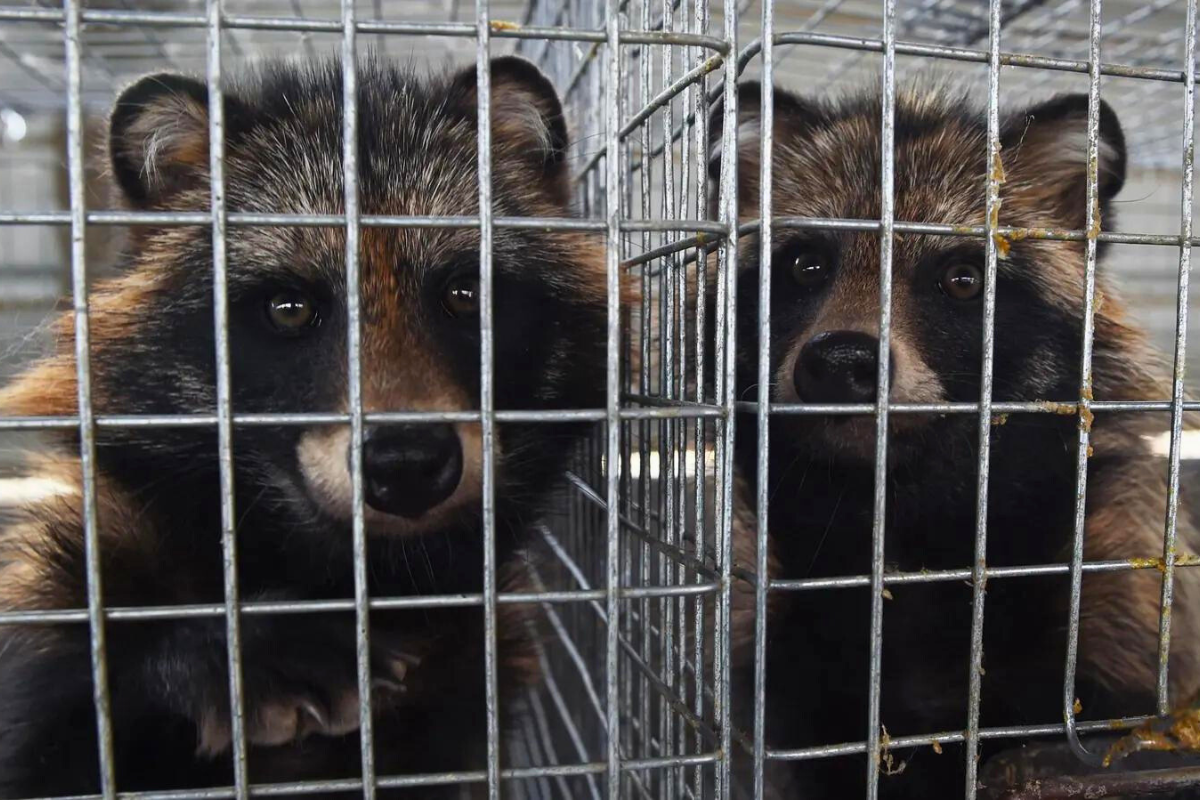New research has confirmed what Friends of Animals has been saying for years; wet markets—wild animal meat markets—in China were almost certainly the epicenter for the COVID-19 pandemic. Recent research published in the peer-reviewed journal Cell provides detailed genetic evidence that raccoon dogs, an exotic species known to be susceptible to coronaviruses, were among the animals sold at the Wuhan wet market where the COVID-19 outbreak first emerged.
The study reveals in detail that coronavirus-susceptible wildlife and the SARS-CoV-2 virus were present in close proximity to humans at specific market stalls, highlighting the dangers of wildlife trade and its role in zoonotic disease transmission.
While raccoon dogs can transmit various pathogens to humans, it’s only possible when they end up in environments where they can easily spread them to people. Human actions, such as selling raccoon dogs in wet markets where they are crowded with other animals, increase the risk of disease transmission.
According to experts, there are three main ways humans can contract viruses from raccoon dogs, all heightened by their sale in wet markets: handling the animals’ bodily fluids and touching one’s face, inhaling fluids during slaughter and consuming their meat.
As early as March of 2020, Friends of Animals was calling on U.S. and world leaders to shutter their wet markets where millions of wild animals are killed and sold for consumption.
“It is becoming increasingly clear that most of the zoonotic emerging infectious diseases of recent decades, including the present COVID-19, are linked to the wildlife trade,” Priscilla Feral wrote in a letter sent to WHO Director General Dr. Tedros Adhanom Ghebreyesus. A similar letter was sent to United Nations Secretary General Antonio Guterres.
“The wet markets of the world have for too long cruelly consumed millions of wild animals and endangered the health of the entire planet. And for what? So someone could dine on the flesh of an exotic animal? Why should civil society tolerate such extreme risks to satisfy self-indulgent decadence?” Feral said.
This latest evidence reinforces the urgent need to shutter wet markets, where animals are sold in cramped, unsanitary conditions that serve as breeding grounds for dangerous pathogens. The pandemic has demonstrated, yet again, the catastrophic consequences of exploiting and consuming animals. To protect human health, prevent future pandemics and save the lives of animals, it’s time to end these markets for good.

